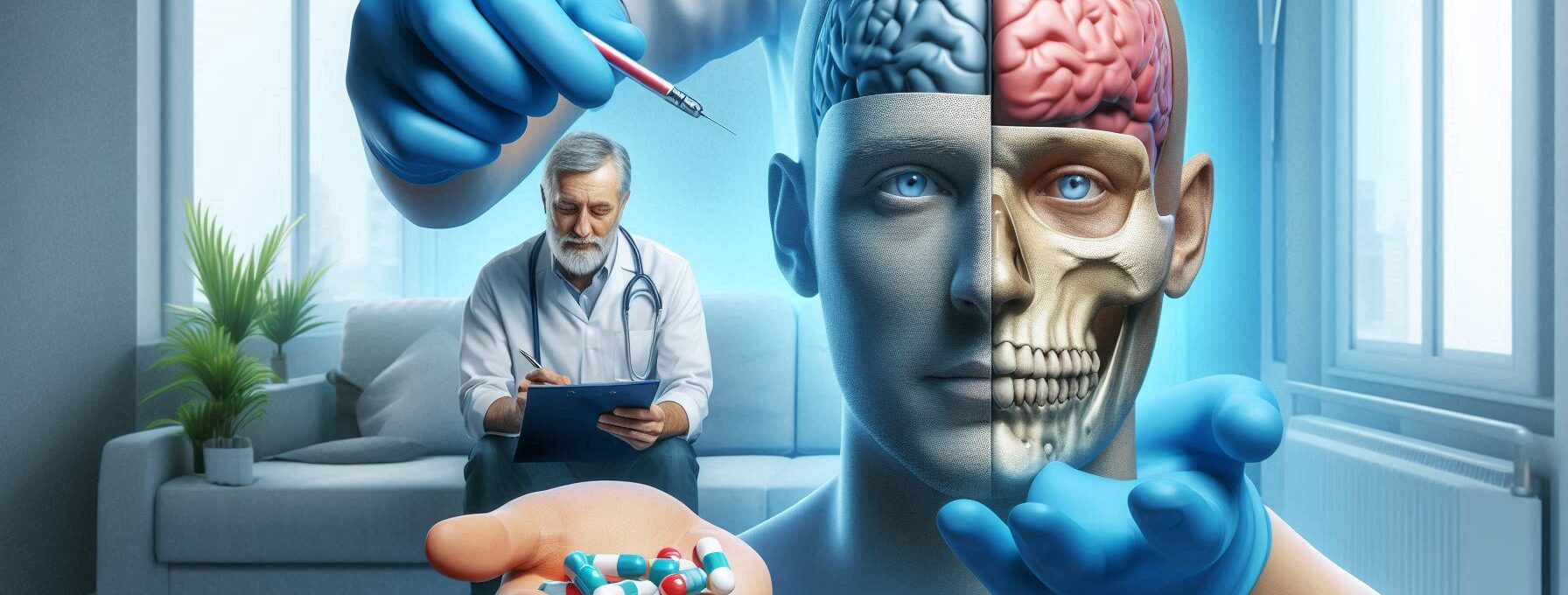Ah, the age-old question in the world of mental health: therapy or medication? It’s a bit like trying to decide between pizza and tacos—both can be delicious, but you have to consider your mood (and possibly your waistline).
As someone who has navigated this tricky terrain, I can tell you that choosing the right treatment is not just about what sounds good on paper; it’s about finding what works best for you. So let’s dive into this topic with a sprinkle of humor and a dash of reality!
Top Takeaways and Key Concepts
- Therapy allows you to process emotions through structured conversations with trained professionals.
- Medications help regulate brain chemistry but require patience and consistent use for effectiveness.
- Combining therapy and medication can address mental health challenges from multiple angles effectively.
- Personal preferences and past experiences should guide the choice between therapy, medication, or both.
- Consulting mental health professionals ensures treatment is tailored safely and appropriately to your needs.
Summary of This Article
The article explores the choice between therapy and medication for mental health, emphasizing that both have unique benefits. Therapy allows individuals to process emotions and develop coping skills through conversation, while medications regulate brain chemistry to reduce symptoms. Combining both approaches often provides the most effective results. The article stresses the importance of personal preferences and past experiences in selecting a treatment plan and highlights the role of professional guidance to ensure safe, individualized care.
Understanding Therapy: The Talking Cure
Please Note: This post may contain affiliate links. If you click one of them, we may receive a commission at no extra cost to you. As an Amazon Associate, I earn from qualifying purchases.

First up is therapy—the classic method where you sit down with a trained professional and spill your guts like an overstuffed burrito.
Honestly, there’s something cathartic about talking to someone whose job is to listen without judgment. You can share everything from your childhood fears of clowns (thanks for that one, Mom) to why you still haven’t returned that library book from 2005.
Therapy comes in many flavors—cognitive behavioral therapy (CBT), psychodynamic therapy, and even art therapy if you’re feeling particularly creative. By the way, I think we can all agree that drawing stick figures while discussing our feelings might be more fun than crying into a tissue.
Interestingly enough, studies show that talking through problems can lead to significant improvements in mental health.
It turns out that verbalizing our worries helps us process them better! Who knew sharing your thoughts could feel as freeing as finally getting rid of those old jeans you’ve been holding onto since high school?
Medications: The Little Pills That Pack a Punch
On the other hand, we have medications—those little pills often touted as quick fixes for mental health issues.
Think of them as tiny superheroes swooping in to save the day! They come in various forms: antidepressants, anti-anxiety meds, and even mood stabilizers. But here’s the catch—they don’t work overnight. If only they came with instant results like microwave popcorn!
Let’s see… taking medication requires patience and consistency. You might start at one dosage and then gradually adjust based on how you’re feeling—kind of like trying to find the perfect amount of sugar for your coffee without turning it into dessert.
However, it’s important to remember that medications aren’t magic potions; they’re tools meant to assist you on your journey toward better mental health.
And speaking of which, some people may experience side effects ranging from mild annoyances (like dry mouth) to things more serious (like feeling like a zombie). It’s crucial to communicate openly with your doctor about how you’re feeling so they can help tailor your treatment plan.
Combining Forces: The Best of Both Worlds
Now let’s talk about combining both therapies because sometimes two heads are better than one—even if one head is just filled with anxiety! Many professionals advocate using both therapy and medication together for optimal results.
This combo approach allows individuals to tackle their mental health challenges from multiple angles.
Imagine this scenario: You’re chatting away in therapy about how stressed work makes you feel while also taking medication that helps level out those pesky emotional spikes. Together, they create a powerful duo!
To be fair though, finding the right balance may take time—and possibly some trial and error akin to figuring out which Netflix series will give you existential dread versus pure joy.
Making Your Choice: What Feels Right?
So how do you decide between therapy or medication? Honestly, it starts by listening to yourself (not literally; that would be weird).
Consider what resonates most with your situation. Have past experiences made talking through issues beneficial? Or do you think chemical assistance might be more effective given what you’re currently facing?
Interestingly enough, research shows personal preferences play an essential role in treatment outcomes too! If sitting on a couch spilling secrets feels daunting while popping pills seems easier—then maybe that’s worth exploring first.
And let me remind you—it’s okay if neither option feels perfect immediately! Mental health treatment isn’t always straightforward; sometimes it’s messy like trying to assemble IKEA furniture without instructions.
Seeking Professional Guidance
When in doubt—or when life feels especially overwhelming—it’s wise to consult professionals who specialize in mental health care. Therapists are trained listeners equipped with strategies tailored specifically for individuals seeking help navigating their emotions effectively.
Likewise, psychiatrists focus on diagnosing conditions and prescribing appropriate medications suited uniquely for each person based on symptoms presented during evaluations—a bit like customizing pizza toppings until everyone agrees it’s delicious!
In conclusion (which sounds fancy), understanding both options gives valuable insight into making informed decisions regarding personal well-being! Remember—you deserve support tailored precisely according TO YOU!
Suggested Resources:
Mental Health America
https://www.mhanational.org/
National Alliance on Mental Illness
https://www.nami.org/
American Psychological Association
https://www.apa.org/
Frequently Asked Questions
How does therapy help with mental health treatment?
Therapy provides a structured space to explore emotions, develop coping strategies, and understand thought patterns with the guidance of a trained professional.
What does medication do for mental health conditions?
Medication helps regulate brain chemistry to reduce symptoms such as anxiety or depression, but it requires consistent use and time to take effect.
Is it better to do therapy, take medication, or use both?
Many people benefit from combining both, as medication eases symptoms while therapy helps build long-term skills for managing emotions and challenges.
How long does it take for medication to start working?
Most medications take several weeks to show noticeable effects, and doctors may adjust the dosage based on how your body responds.
Can therapy work without medication?
Yes, therapy alone can be effective, especially for individuals who prefer talk-based approaches or have mild to moderate symptoms.
What factors should I consider when choosing a treatment?
Personal comfort, past experiences, symptom severity, and professional recommendations all play an important role in selecting the right approach.
Why is professional guidance important in choosing treatment?
Professionals can assess your needs safely, recommend appropriate options, and monitor progress to ensure the treatment aligns with your well-being.

Kevin Collier is a passionate mental health advocate and writer for SadFAQ.com, where he explores the complexities of depression and mental well-being. With a deep understanding of mental health challenges, Kevin provides compassionate insights and practical advice to help individuals navigate their journeys toward healing. His articles aim to destigmatize mental health issues, offering support and resources for those seeking to improve their emotional resilience. Committed to raising awareness and fostering open conversations, Kevin’s work empowers readers to prioritize their mental health and seek the support they deserve.




